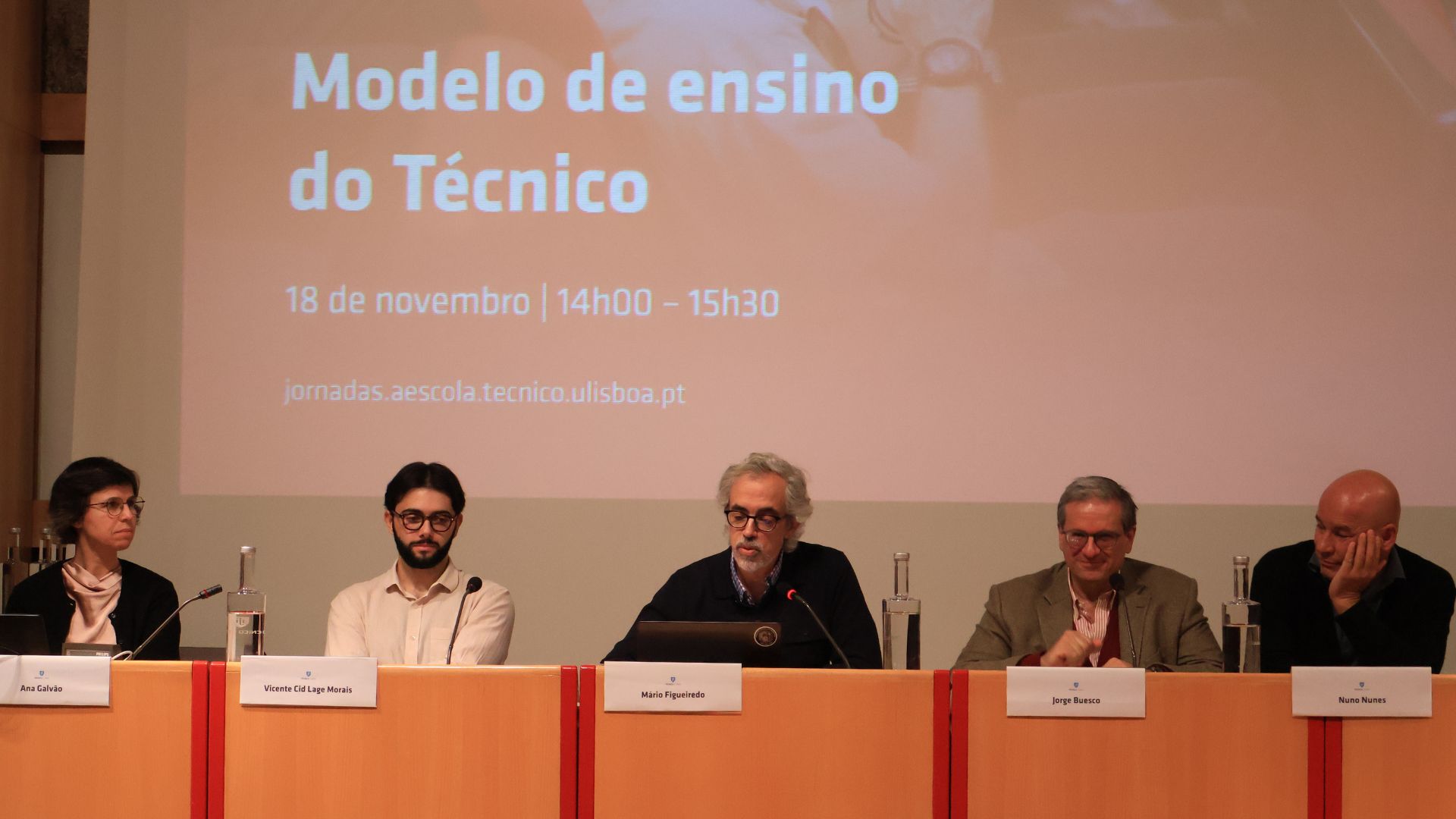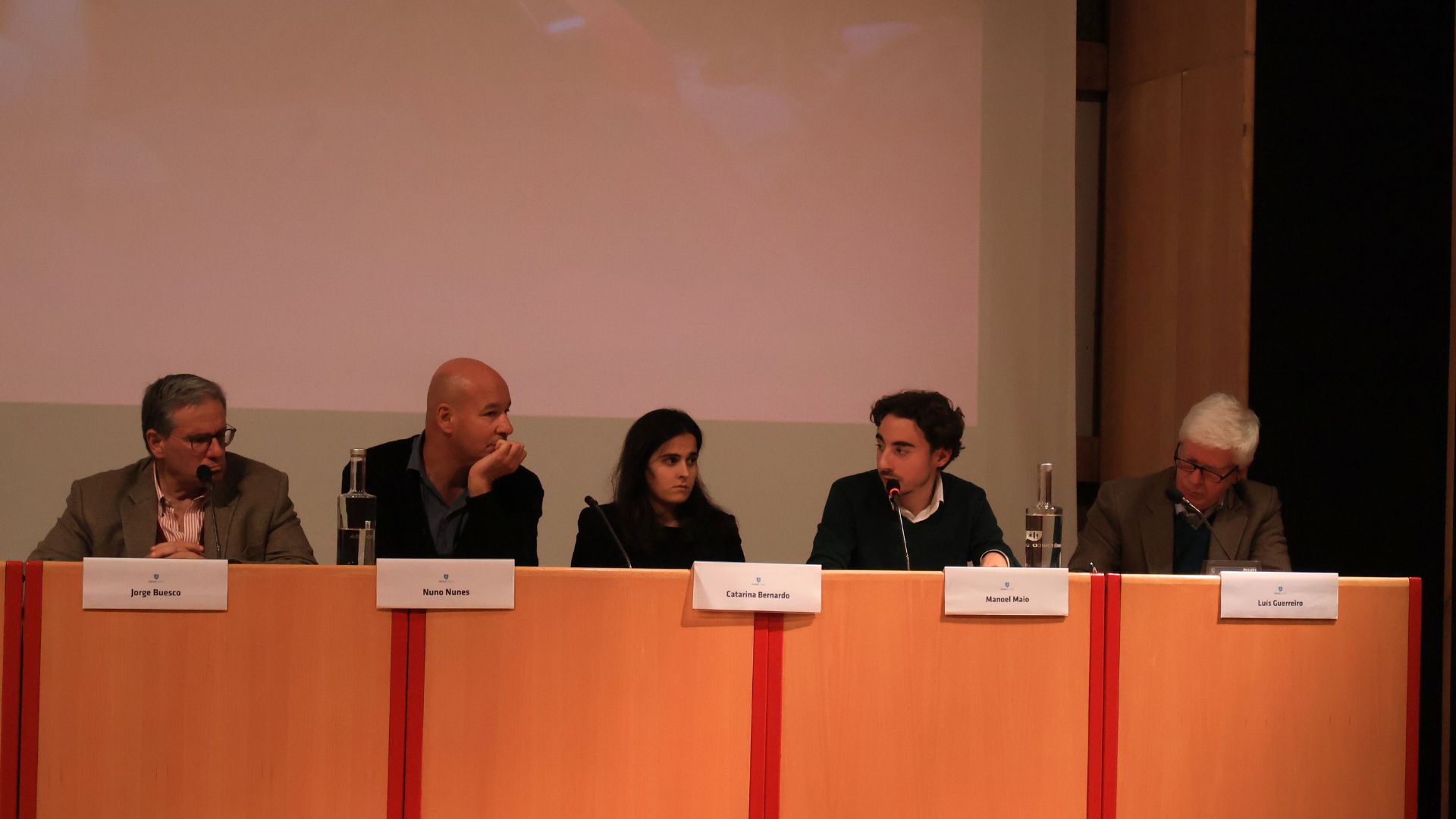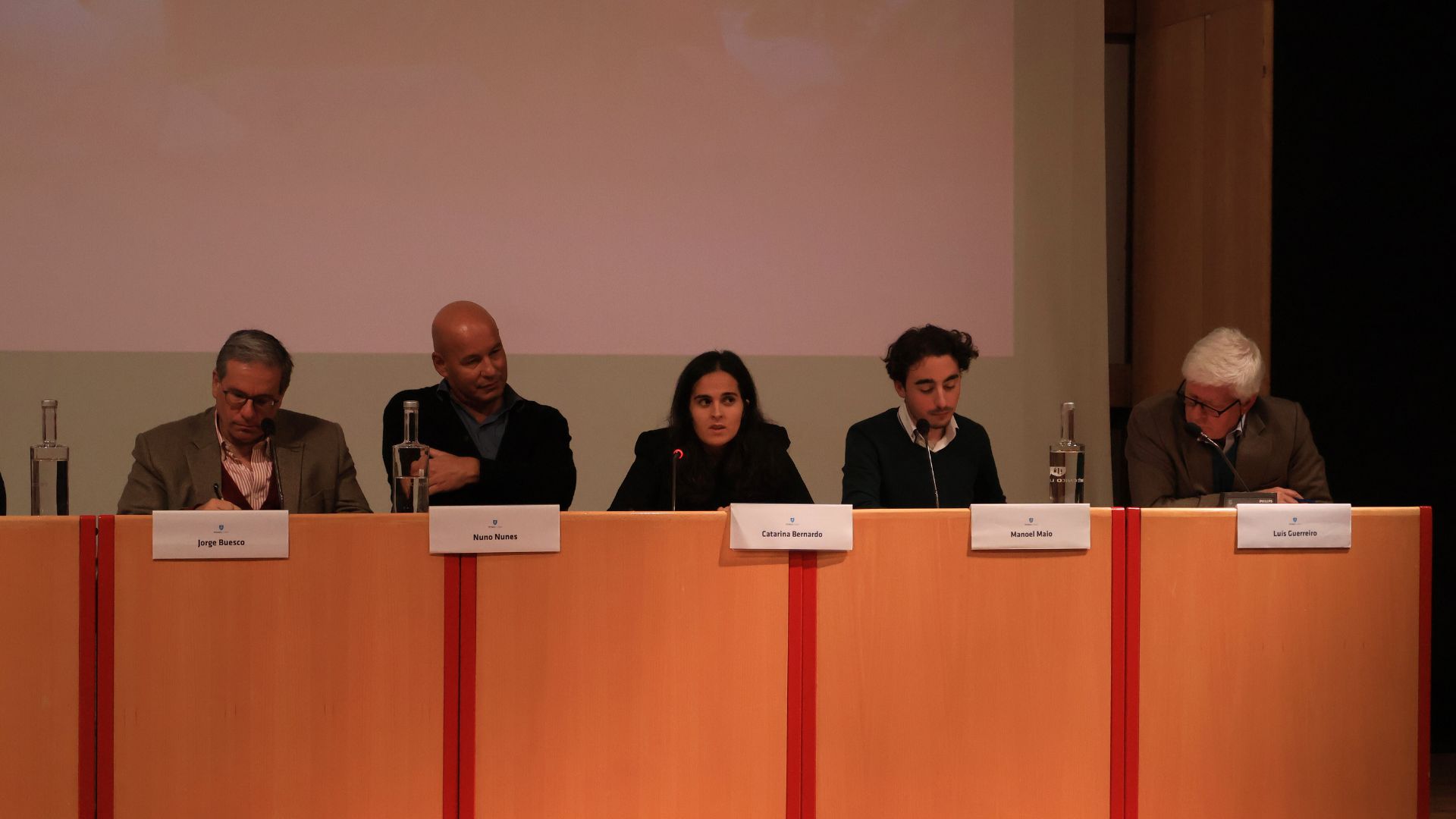Técnico Seminars 2025: Teaching Models at Técnico

The Tuesday afternoon began with the session “Teaching Models at Técnico”, held as part of the Técnico 2025 Workshops. The discussion was moderated by Mário Figueiredo, professor at the Department of Electrical and Computer Engineering (DEEC) and researcher at the Instituto de Telecomunicações (IT). The panel included Catarina Bernardo, PhD student in Electrical and Computer Engineering; Manuel Maio, Master’s student in the same program; Vicente Cid Lage Morais, member of the Pedagogical Council; Jorge Buesco, professor at the Faculty of Sciences of the University of Lisbon; and Nuno Nunes, professor at Técnico.
After a reflection on the surveys dedicated to teaching, several questions on the topic were addressed to the speakers.

Mário Figueiredo chaired the Formative Efficiency Evaluation Committee (CAEF) of Técnico’s first-cycle programs, which was responsible for producing a report on students’ academic experience. This report examined several parameters, including time management, performance, and cultural aspects — themes that framed the session.
The professor began by referring to the words of Luís Caldas de Oliveira, in an article published by the newspaper i: “The phrase ‘Education is not the filling of a bucket, but the lighting of a fire’, attributed by some authors to William Butler Yeats, expresses well what we aim for in the educational process. However, we observe that university students seem increasingly focused on filling the bucket with a good grade rather than on the flame that emerges from learning.” Throughout the article, Luís Caldas de Oliveira highlights the importance of intrinsic motivation in the learning process, at a time when the use of artificial intelligence tools is growing, stressing not only the student’s perspective but also the teacher’s.
We need to change the narrative: it is not about ‘not cheating’, but about not deceiving oneself.
Luís Caldas de Oliveira, DEEC, newspaper i
Opening the first discussion topic, Mário Figueiredo pointed out that the data presented in the report revealed a tendency toward an excessive focus on assessment. He therefore asked the students how they would react if they were assessed less frequently. Manuel Maio began by emphasizing that continuous assessment “forces” students to adopt more regular study habits, due to short-term goal setting, which strongly contributes to the consolidation of knowledge acquired in class. However, he also noted that assessment periods sometimes overlap across several course units, making study management more difficult for students, and that continuous assessment ends up having no impact when students choose to take resit exams.
Catarina Bernardo studied at Técnico before the reformulation of the current teaching model, which now prioritizes continuous assessment. She thus experienced the transition process, which required a significant change in students’ study management, as greater attention began to be placed on assessment dates rather than on the learning process itself. She also emphasized the need for greater student support from teachers.

Considering the comments made, Mário Figueiredo raised the question of how teaching based on curiosity can be fostered, shifting students’ focus away from assessment, especially given that grades no longer carry the same weight in the transition to the job market as they once did, with greater relevance now placed on the skills students acquire. Manuel Maio noted that the restructuring of teaching, along with the scheduling of course-unit periods, has required teachers to constantly readapt in order to improve their assessment processes over the years. He also addressed the functioning of laboratories and the practical dimension of teaching, highlighting the role of extracurricular activities in students’ learning.
Catarina Barata spoke about the importance of students developing the ability to connect laboratory learning with theoretical classes, a goal supported by the creation of assessment moments that include both components. She also emphasized the value of study visits and contact with companies, as students tend to feel more motivated when exposed to real problems and solutions with societal impact.

The session also included questions from the audience, covering topics such as class attendance, teaching materials, and the importance of student feedback.
